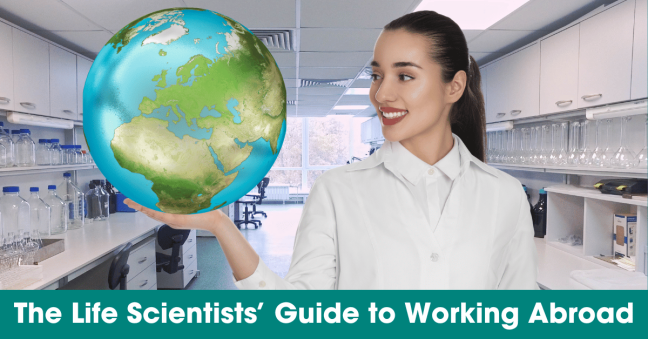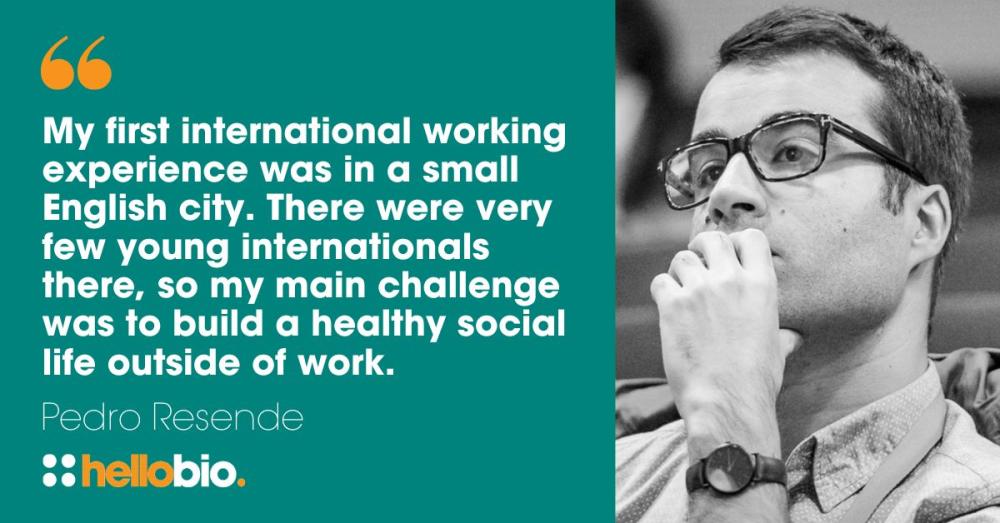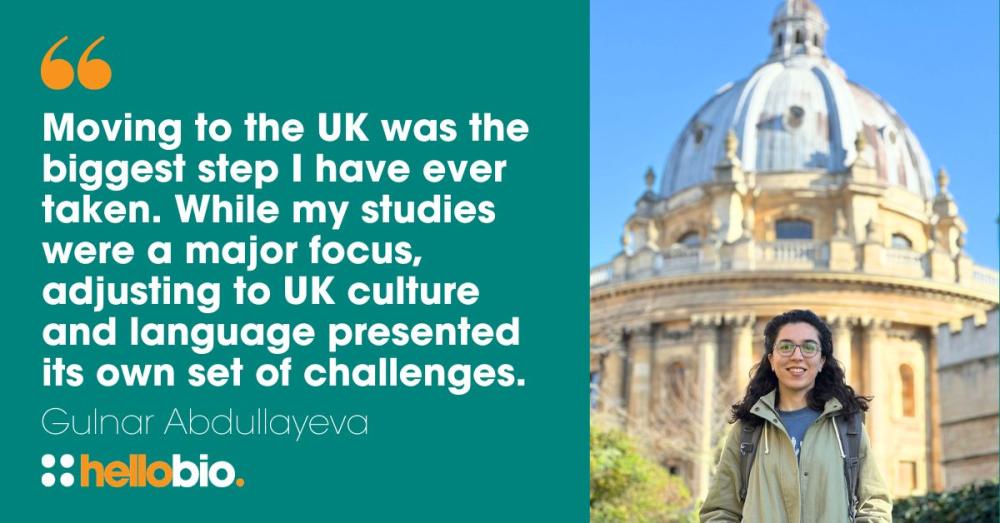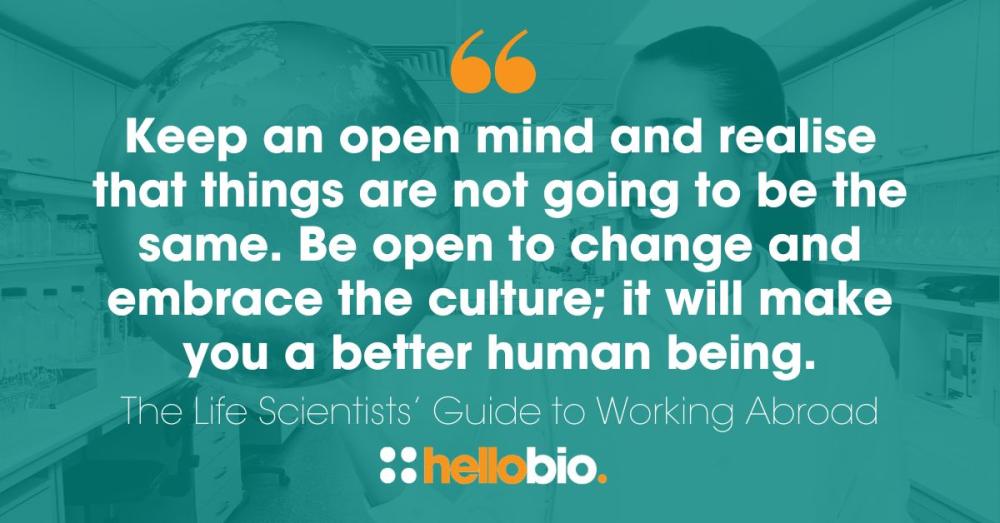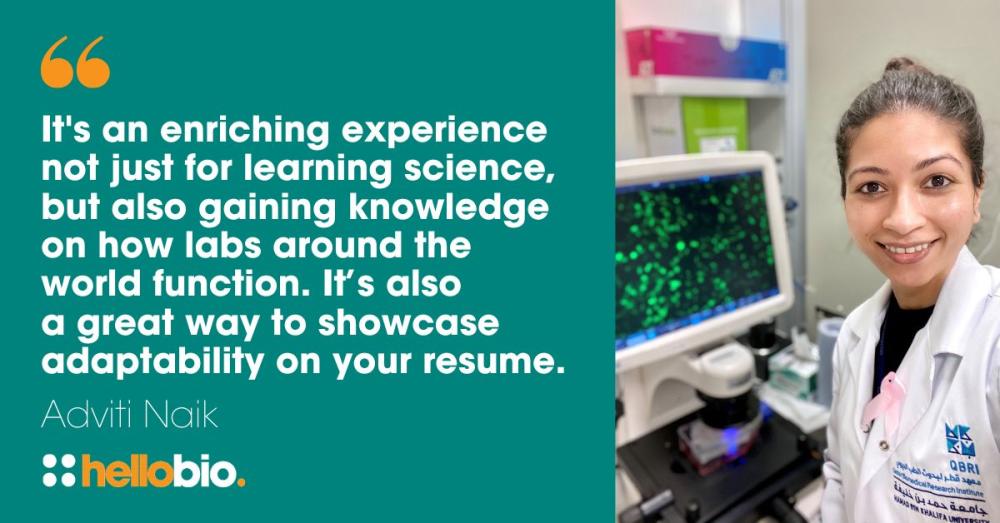The Life Scientists’ Guide to Working Abroad
For many life scientists, working abroad will be high on their list of long-term career goals. Moving to an international lab can open up exciting opportunities and experiences for a science researcher, but there’s a lot to consider when planning for a life-changing move abroad.
Working in a new country could mean learning a new language, adapting to a different working culture, and almost certainly pushing yourself way beyond your comfort zone. There are also practical matters to consider such as visas, finances, and insurance, plus the daunting prospect of being hundreds or even thousands of miles away from loved ones back home.
However, many scientists agree that the benefits of working abroad are significant and will provide a huge boost to your research CV. To help you plan for a potential move, we’ve gathered advice from a number of life scientists who’ve worked in different countries around the world and have generously shared their top tips for a smooth transition to life in an international lab.
So grab your passport and find everything you’ll need to know in The Life Scientists’ Guide to Working Abroad!
Getting ready for departure
Before setting foot on a plane or train, there’s plenty of preparation to be done in advance of your big move. You’ll need to take into account not just the professional side of your potential move, but the personal impact it could have as well.
Choosing the right destination
Your new home may already be determined by a specific job opportunity that’s come your way. However, if you’re in the enviable position of having a number of potential countries to choose from, here are some important factors to consider:
-
Language - Could language barriers limit your ability to teach, collaborate, or present your work? Are you willing to learn a new language to improve your experience?
-
Reputation - Is the country known for excellence in a particular field of science research? Could this benefit your career long-term?
-
Funding - Are labs typically well-funded there, or do budgets tend to be tight? How easy is it to access financial support when moving from abroad?
-
Networking & contacts - Do you already have existing contacts or collaborators working in the country? Consider how easy/difficult it might be to network and make new connections there.
-
Regional events - Is the country known for hosting large scientific conferences or other events that might benefit your career?
-
Distance - How easy/difficult will it be to make regular trips home to visit family or loved ones, and how important is this to you?
-
Policy & political climate – Does the country have a welcoming and supportive approach to international researchers? Are there any recent changes in immigration or visa policy that might affect your ability to work there or feel at home? Keep in mind that political decisions and public attitudes can influence how easy (or hard) it could be to build a fulfilling life abroad.
In this interview with us, Pedro Resende of Chaperone told us about his experience of moving from Portugal to the UK, and later to the USA. He explained the challenges he faced in finding new friends, and the difficulty of living so far from home: "My first international working experience was in a small city in the south of England. It was not the easiest place to make friends, because there were very few young internationals living there, so the main challenge was to build a healthy social life outside of work. When I moved to California however, the challenges were different. I was much happier with my social life in San Diego and Los Angeles, but it was very hard to be 16 hours away from my family and friends.”
Passports, paperwork & legal logistics
Once you’ve decided where you’d like to go you’ll need to look carefully at the legal requirements of a move to that country. Will you require a visa or work permit to take up a role there? If so, how long will it take to process, and are there any restrictions on working hours, contract duration, or job type? Some visas can be specific to researchers, skilled workers, or post-docs, so be sure to check you’re applying for the correct one to match your new position of employment.
Some examples of visas specific to science/academia:
- The Global Talent visa (for those moving to the UK)
- O-1 Visa (moving temporarily to the USA)
- EB-2 Green card (permanent move to the USA)
- Directive (EU) 2016/801 (long-term move to Europe)
Note: You should always consult the host country’s embassy or immigration site for the most accurate and up-to-date information
It’s likely you’ll need to open a new bank account in your chosen country, and be sure to check whether you’ll need to pay tax in your home country, host country, or both. Check with your current institute’s HR or careers advice team who will be able to advise on some of the above and ensure you have all the right documents in place. On arrival at your new place of work, seek out any helpful resources or support offices for international researchers who can help you to get everything registered at the other end.
In the Life Scientists’ Guide to Applying for Postdocs, Dr Matthew Lloyd of the University of Bath mentioned additional challenges when applying for positions abroad. He told us: "If you do decide to apply for a job in another country, be mindful that the PI is going to have to justify why they are employing you and not someone from their host country. Science tends to be highly specialised so it can be quite easy to justify based on your specific experience, but it will depend on the general level of demand for postdocs and economic conditions in the host country. Be aware that there may be specific eligibility requirements you’ll need to satisfy in order to allow you to work in the host country."
Connect with colleagues
Another great way to ensure a warm welcome is to connect with your new colleagues and potential collaborators in advance of your move. Make use of social media and professional networking sites such as LinkedIn to introduce yourself to the scientists you’ll be working with at your new lab. We’ve published a number of articles offering advice about online networking, recommended platforms, and building your online profile. Take a look here: https://hellobio.com/blog/tag/social-media.html
Securing the essentials
Other considerations that will be high on your list are accommodation, insurance, and healthcare. If you’re lucky, accommodation may be provided by your new employers, however it’s likely this is something you’ll need to secure for yourself. Once again, seek advice from the support teams at your new institution who are likely to have the most relevant and up-to-date information to help you find somewhere suitable to live.
Some countries will provide free healthcare for non-citizens, where others will require you to pay for health insurance to guarantee treatment when needed, so be sure to do your research before you arrive.
Welcome to your new life!
Once everything’s in place and you’ve reached your destination, it’s time to start the settling-in process.
Adapting to a new culture
International labs can have very different working styles and cultures to those of your home country, so prepare for things to feel quite different as you settle in. Leadership styles and hierarchy structures can differ, so try not to arrive with specific expectations on how your new lab will operate. Stay open-minded and be prepared to be flexible as you feel your way around your new working environment.
Some examples of differing hierarchy and working styles in labs around the world:
-
United States - labs often operate independently and are run by a PI who makes decisions on direction and funding, hierarchy is clear but all teams members are expected to contribute ideas, academic titles are important but daily working culture is generally more informal
-
China & Japan - respect for seniority is important and is deeply embedded in lab culture, it is rare for junior researchers to challenge senior scientists, communication is formal and lab harmony is valued highly, working long hours or at weekends can be seen as a sign of dedication
-
Scandinavia - lab culture is generally very collaborative, researchers at all levels work closely together and decisions are made democratically, a good work-life balance is highly prioritised
-
Germany - seniority is highly valued and respected, and PIs may be less hands-on in daily experiments, junior researchers are encouraged to work independently
-
United Kingdom - lab hierarchy exists but PIs are considered very approachable, teamwork and group meetings are common and input from junior researchers is welcomed, job roles are clear but flexibility is encouraged
Be sure to clarify the preferred communication style of your new team, and how/when is appropriate to give feedback or raise concerns. Make sure you understand whether you’re expected to work independently, or whether you should expect guidance from senior lab leaders.
In this interview with us, Gulnar Abdullayeva told us about the challenges of her move from Azerbaijan to Oxford, UK. She said: "Leaving Azerbaijan and moving to the UK was the biggest step I have ever taken. While my scientific studies were a major focus, adjusting to working in the UK presented its own set of challenges. Firstly, having relocated from Azerbaijan, I was unfamiliar with the culture here. Secondly, there was the inevitable language barrier. While I had a good grasp of English, certain idioms and colloquialisms can be tricky to understand. As this was my first time away from my family, soon I got homesick. But thanks to the friendly nature of people in Oxford, with time I adjusted. I made new friends and started socialising."
Viswanath Vittaladevaram of the University of Galway has worked in his home country of India, as well as Germany and Ireland. He told us a little about his experiences of adapting to new lab cultures: "I definitely had to learn to become independent in order to adjust to the culture of my new lab. It took time to adapt to this new style, but my peers were very supportive in that matter. My supervisor really helped me to feel most settled and made the environment feel just like a home away from home. Working abroad has tested my patience and determination, but it has been more than I expected in terms of gaining international experience, and I am sure it will reshape my future."
Dealing with homesickness
Moving a significant distance away from family and friends can be emotionally challenging, and feelings of homesickness are something you should prepare yourself for. While the excitement of starting a new life will be great, those first few weeks can be an isolating experience and can have a significant impact on your mental health.
Maria Diehl is an assistant professor at Kansas State University, USA, who spent 6 years working as a postdoc at the University of Puerto Rico School of Medicine. In this interview she told us about the challenges of living and working in a new country and the things she missed most about home. She said: "When I moved to Puerto Rico I realised that they did not have many of the foods I loved, so I had to adapt. Now, I definitely miss having avocados, pineapples, papayas, and other tropical fruits year round and especially having the best coffee ever! Living in Puerto Rico ruined my ability to drink weak American-style coffee!"
Join an expat network and look out for social clubs or support groups specific to international researchers. In this interview with us, Jeniffer Sanguino Gómez of the Leiden University Medical Centre in the Netherlands, told us about an association she discovered via social media which is specific to Spanish researchers working in the Netherlands. She said: "Thanks to social media I got in contact with the Spanish Association of Spanish Researchers in the Netherlands (CENL-SWNL), which works to create a space in which to share ideas, support each other during our stay in the country, connect Dutch and Spanish institutions and, of course, science outreach! It has been a great experience, their members are very active, welcoming and passionate and they are promoting Science-related projects (scicomm via podcast, interviews and blog, workshops at schools, etc.)"
Find out more about the association here: https://www.cenetherlands.nl/
Embrace the adventure
Ultimately, moving abroad for work is a huge challenge and it’s natural to be apprehensive about starting a new life in another country. However, it’s a move that can reap great rewards if you’re willing to embrace the experience and adapt to your new surroundings. Maria Diehl’s overall advice for life scientists moving abroad was:
Dr Lucka Bibic of Spring Nature Group has worked in Slovenia, Australia, UK, Denmark, and the Netherlands and she told us how her time abroad has benefited both her professional and personal development. She said: “Working with people from all walks of life has helped me to keep an open mind to new ways of thinking. And as I keep learning new things about the world and the people around me, that helps me grow as a person.”
Make the most of every opportunity
As well as making friends for life, time spent in an international lab will help you create valuable new professional connections and present you with unique opportunities. Be sure to consider each one that comes your way, and learn as much as you can from your time abroad.
In The Life Scientists’ Guide to Applying for Postdocs, Adviti Naik of Carnegie Mellon University in Qatar told us why it’s essential to make the most of every opportunity that comes your way. She said: “If you can, definitely try to do your PhD or postdoc stints abroad at international labs - it's a very enriching experience not just for learning science, but also gaining knowledge on how labs around the world function and the cultural experience is immense to grow into an empathetic scientist. There is so much to learn and absorb with every move (in the lab and outside), building new networks and gaining additional mentors. It’s also a great way to showcase adaptability on your resume. I’m currently located in the fifth country that I’ve moved to for science and I absolutely cherish the cultural and scientific learning experience gained through this nomadic life.”
For more insight on working in an international lab, check out these great guest articles on the Hello Bio blog:
- Undertaking a PhD in an International Lab – by Sonia Sanz Muroz
- Should I do an Internship Abroad? The Whys and Why Nots – by Jolien Hendrix
For more on applying for STEM roles:
_________________________________________________
If you enjoyed this article, why not check out the other resources available on our blog. We are passionate about supporting life scientists including early career life scientists and PhD students - with really low-priced reagents, antibodies and biochemicals, early career scientist grants, and resources to help with both personal and professional development. We know how tough it is - so we hope you find these helpful!
More General Support for Life Scientists
For advice on wellbeing, dissertations, presenting at conferences, wellbeing, PhD support, networking and lots more, we have a huge range of articles to help - just click below:
Save up to 50% on our high purity reagents...
When you get to the stage of planning your experiments, don't forget that we offer a range of low-cost, high-purity agonists, antagonists, inhibitors, activators, antibodies and fluorescent tools (yes - they really are around half the price of other suppliers!) You can use our Quick Multi-Search Tool to search for lots of products in one go, and the range includes:
- Enzyme inhibitors and activators
- Chemogenetic ligands
- Ion channel modulators
- GPCR & ionotropic receptor ligands
- Cell biology reagents & biochemicals
Technical resources
Try our Molarity Calculator: a quick and easy way to calculate the mass, volume or concentration required for making a solution.
Try our Dilution Calculator: an easy way to work out how to dilute stock solutions of known concentrations
We also offer a comprehensive range of technical resources including antibody protocols and methods, product guides and mini-reviews:
And finally, don't forget to check back in with our blog regularly for our latest articles. If there’s something you’d love to contribute to the community, whether that’s an interview or article, drop us a line at hello@hellobio.com
---





